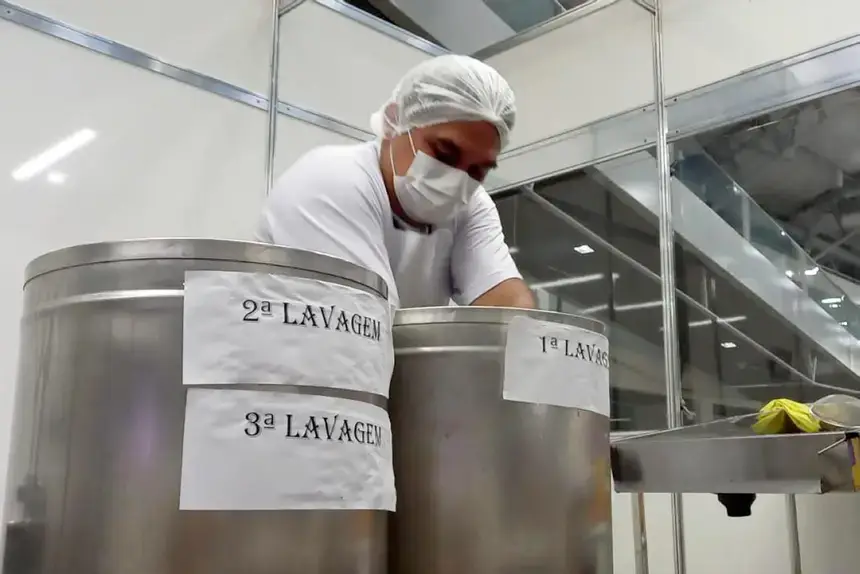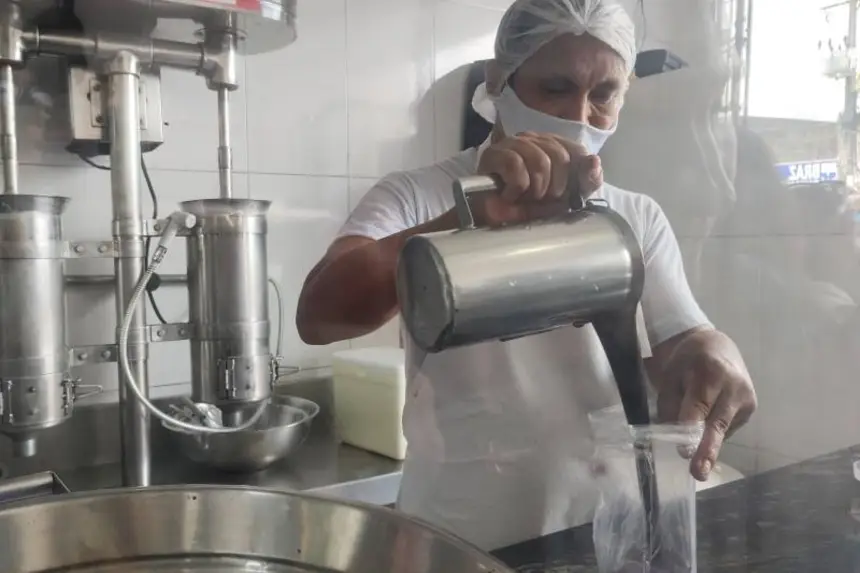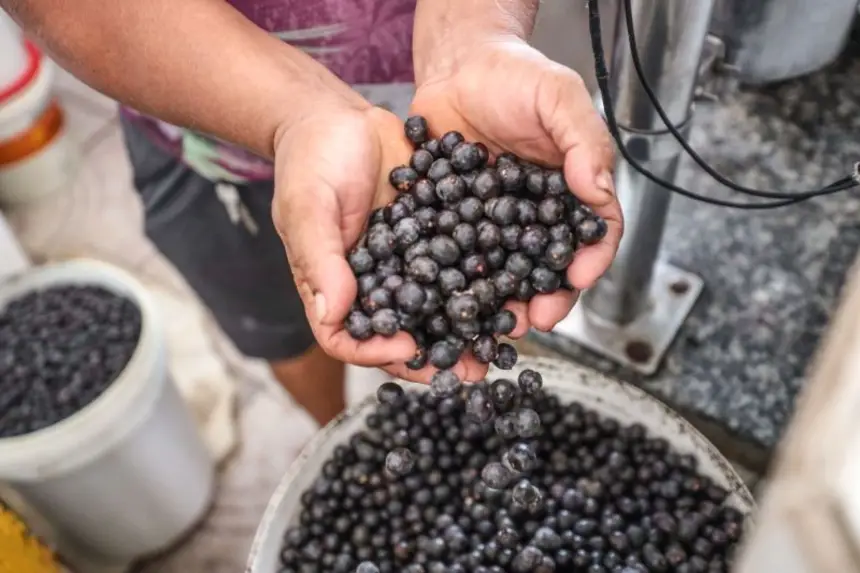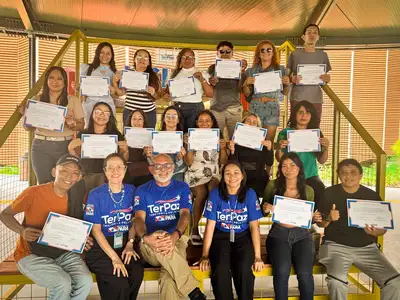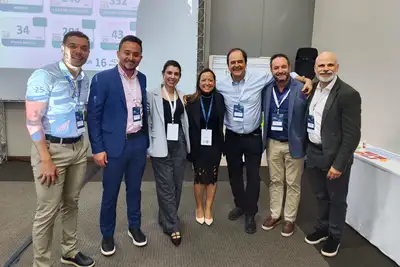State institutions coordinate the registration of açaí sales points in partnership with the Public Prosecutor's Office and the City Hall of Belém
More than 1,600 community health agents (ACS), who will register the sales points, will be trained this Wednesday (13). The program will include representatives from the agencies involved in the action.
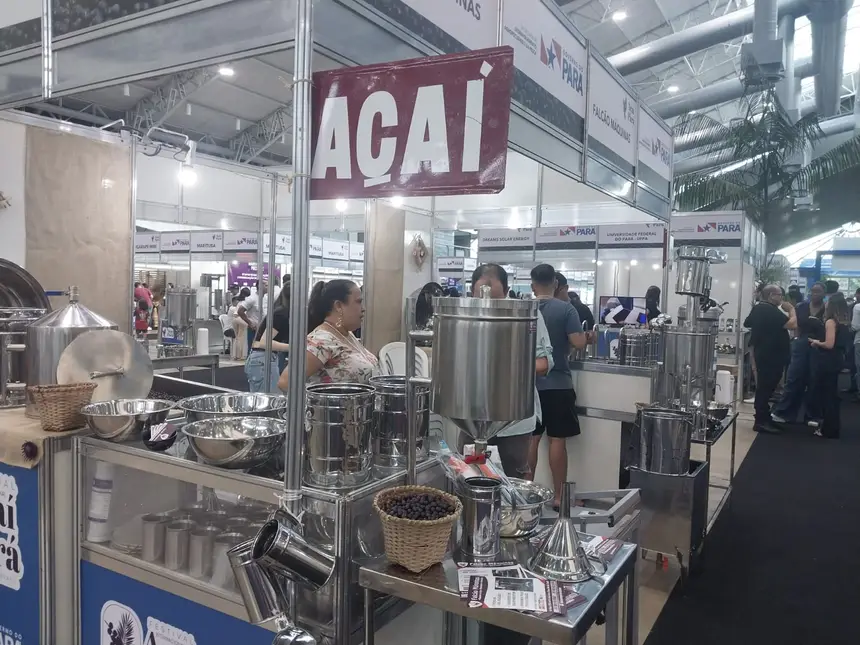
From September 1 to 5 of this year, a campaign to register açaí sales establishments will be held in Belém. The initiative is coordinated by the Consumer Defense Center (Nucon) of the Public Prosecutor's Office of the State of Pará (MPPA) and involves the participation of institutions from state and municipal spheres. The Secretary of Agricultural Development and Fisheries (Sedap), through the Coordination of Good Açaí Practices and the Fruit Growing Management, supports the action. The registration will be carried out by community health agents (ACS) from the municipality of Belém.
In addition to Sedap, state agencies such as the State Secretary of Public Health (Sespa)/State Sanitary Surveillance, the Agricultural Defense Agency of Pará (Adepará), and the Consumer Protection and Defense Agency (Procon), linked to the State Secretary of Justice (Seju), are part of the Committee for Combating Chagas Disease. The state institutions, besides participating in the coordination actions, by carrying out disease prevention actions, are monitoring the preparations for the training that will take place this Wednesday (13) for the 1,625 community health agents (ACS). The program will take place at the Arena Guilherme Paraense (Mangueirinho), starting at 9 AM. Representatives from different public agencies will give lectures on themes related to good açaí practices.
Quality Program- On the 25th of last month, Sedap held a meeting with representatives from state and municipal public institutions to discuss the creation of the registration campaign. According to the manager of Fruit Growing at Sedap, Geraldo Tavares, who coordinates the Pró-Açaí program, it is important to register the açaí processors. He recalled that all actions aimed, for example, at good açaí practices are provided for by the State Açaí Quality Program (PEQA), as outlined in State Decree No. 250/11, which is coordinated by Sedap and involves the participation of 14 institutions.
“The program this Wednesday aims to train community health agents to understand the situation involving Chagas Disease related to açaí. Since health issues fall under the jurisdiction of Sespa, this training will be conducted together with the State and Municipal Sanitary Surveillance,” he said.
The main purpose of this event, as emphasized by Tavares, is to register the processors. “Finally, we will have a census that shows how many artisanal processors exist in Belém and also the clarification that will be provided to the processor about good practices. Afterwards, it will be possible to create a map of each region, of each neighborhood, to visualize and plan more effective public policies.”
Educational- Prosecutor Érica Almedia de Sousa, coordinator of the Consumer Center of MPPA, stated that the action will have an exclusively educational character and support for the processors, without involving inspection. The main objective is to identify the establishments for the subsequent offering of training in good practices for handling açaí fruits, in addition to the possibility of integrating participants into future programs for donating equipment and guidance on appropriate structures for receiving and storing the fruits.
The action is coordinated by the City Hall of Belém. On the last day 5, the prosecutor met with the mayor of Belém, Igor Normando, who informed about the support that the Municipal Power provides to ensure safe açaí for consumers.
“This registration work will provide direction for public policies to improve these açaí sales points in Belém. We need to locate and quantify them to direct policies. And with all this work that has been done by the Food Working Group, there has been a significant improvement, both in the structuring of Sanitary Surveillance and improvements regarding cases of Chagas Disease that have already decreased,” he noted.
Since February of last year, at the initiative of the MP, representatives of public institutions – such as Sedap, Sespa (Coordination for Combating Chagas Disease), Adepará, Municipal and State Sanitary Surveillance, Casa do Açaí, among others, participate in the GT with the aim of combating Chagas Disease through good practices in açaí handling. The registration, which will take place in September, is the result of this coordination that also involves partnerships with federal institutions, such as the Federal University of Pará (UFPa) and the Brazilian Agricultural Research Corporation (Embrapa).
“This is a prevention policy in which we talk to the processor, where they start to carry out the processing phases; this is the great importance: to bring information and courses to this processor, more information on how to carry out the processing, how to access machinery and which secretary to contact. We need to know where they are to direct this knowledge to them,” emphasized the prosecutor.


